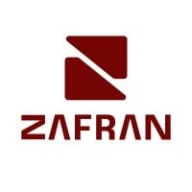


ServiceNow Security Operations and Unified Vulnerability Management are competing solutions in security management. ServiceNow seems to have the upper hand in integration capabilities, while Unified Vulnerability Management is stronger in vulnerability assessment features.
Features: ServiceNow Security Operations offers integration with IT workflows, automated threat intelligence, and incident management. Unified Vulnerability Management provides comprehensive vulnerability assessments, real-time threat data, and advanced risk prioritization.
Ease of Deployment and Customer Service: ServiceNow Security Operations utilizes a cloud-based deployment model, focusing on quick implementation within IT ecosystems with extensive support options. Unified Vulnerability Management has straightforward setup with dedicated support but may require more customization.
Pricing and ROI: ServiceNow Security Operations often involves higher upfront costs, yielding significant ROI through operational efficiencies and automation. Unified Vulnerability Management offers competitive pricing with strong ROI due to enhanced threat detection capabilities.
| Company Size | Count |
|---|---|
| Small Business | 6 |
| Midsize Enterprise | 2 |
| Large Enterprise | 15 |
Zafran Security integrates with existing security tools to identify and mitigate vulnerabilities effectively, proving that most critical vulnerabilities are not exploitable, optimizing threat management.
Zafran Security introduces an innovative operating model for managing security threats and vulnerabilities. By leveraging the threat exposure management platform, it pinpoints and prioritizes exploitable vulnerabilities, reducing risk through immediate remediation. This platform enhances your hybrid cloud security by normalizing vulnerability signals and integrating specific IT context data, such as CVE runtime presence and internet asset reachability, into its analysis. No longer reliant on patch windows, Zafran Security allows you to manage risks actively.
What are the key features of Zafran Security?
What benefits can users expect from Zafran Security?
In industries where security is paramount, such as finance and healthcare, Zafran Security provides invaluable protection by ensuring that only exploitable vulnerabilities are addressed. It allows entities to maintain robust security measures while allocating resources efficiently, fitting seamlessly into existing security strategies.
ServiceNow Security Operations is a cutting-edge security solution designed to elevate organizations' security incident response (SIR) processes through automation and orchestration. Going beyond traditional SOAR, this comprehensive Security Operations Suite integrates seamlessly with other ServiceNow products and offers a wide array of features. Its components include Security Incident Response (SIR), which automates incident workflows and offers pre-built playbooks; Security Configuration Compliance (SCC), continuously scanning and automating compliance tasks; Vulnerability Response (VR), prioritizing and remediating vulnerabilities; Threat Intelligence (TI), aggregating threat data for proactive threat hunting; and additional features like IT Service Management integration, Machine Learning and AI, reporting, and a mobile app. The benefits span improved incident response speed, reduced mean time to resolution, increased security posture, enhanced compliance, collaborative synergy between security and IT teams, and operational cost reductions.
Unified Vulnerability Management streamlines the identification and management of security risks. It's designed to enhance cybersecurity efforts by providing consolidated tools and insights for managing vulnerabilities.
Unified Vulnerability Management plays a crucial role in cybersecurity by centralizing tools and processes, optimizing risk management with real-time insights, and offering customizable reporting. Its integrated approach allows organizations to address threats promptly, ensuring a proactive security posture.
What are the key features of Unified Vulnerability Management?
What benefits should users look for in Unified Vulnerability Management?
In sectors like finance and healthcare, Unified Vulnerability Management is implemented to meet compliance requirements and protect sensitive data. Its robust capability to manage complex environments supports integration into diverse organizational frameworks, ensuring tailored solutions for industry-specific challenges.
We monitor all Risk-Based Vulnerability Management reviews to prevent fraudulent reviews and keep review quality high. We do not post reviews by company employees or direct competitors. We validate each review for authenticity via cross-reference with LinkedIn, and personal follow-up with the reviewer when necessary.